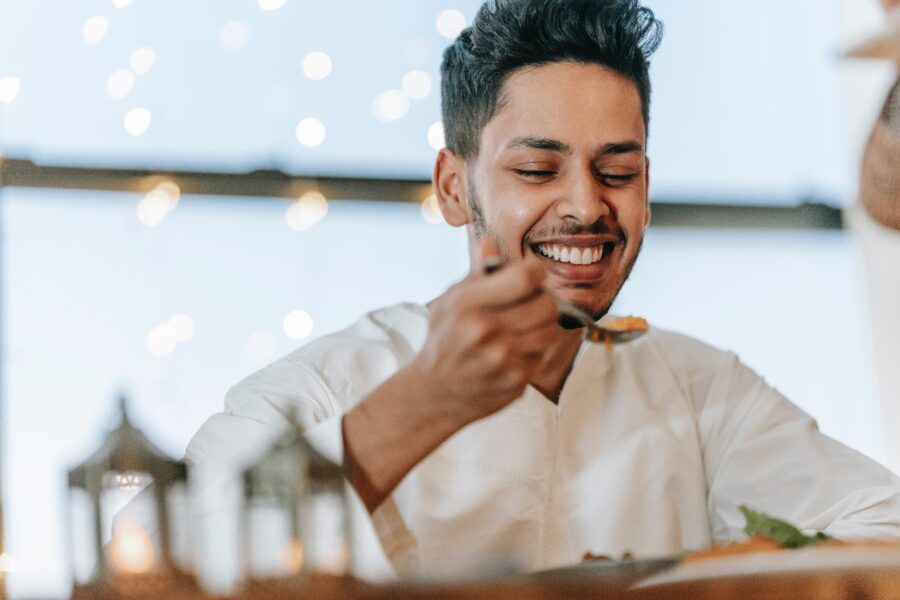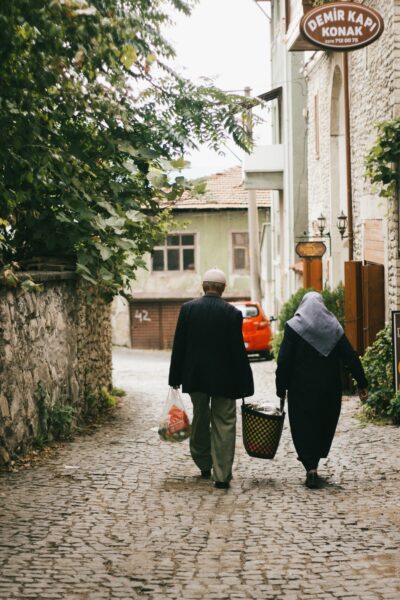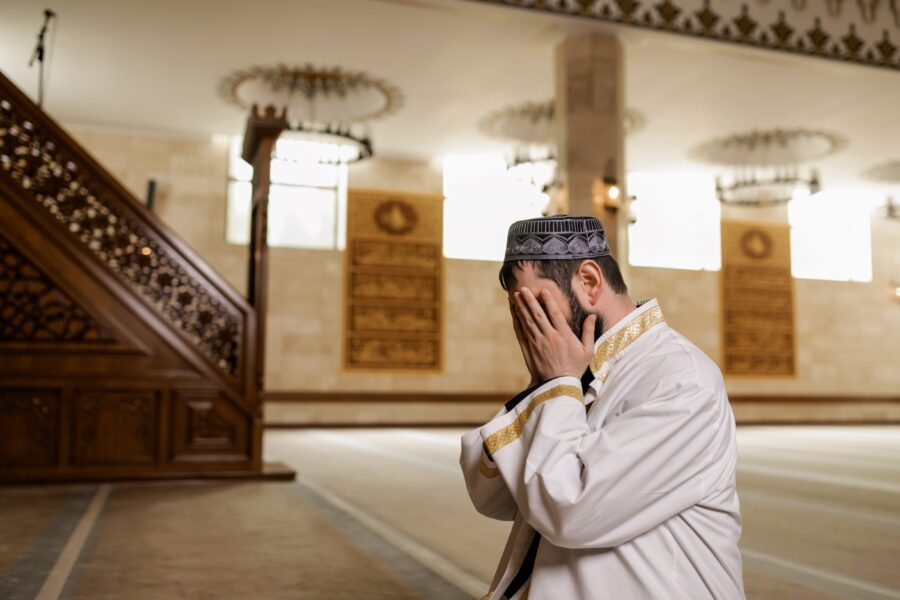The Islamic Perspective on Manhood
On International Men’s Day, we take a deeper look at what manhood is. It couldn’t have come a better time, with such polar opposite narratives of what an ‘alpha male’ is bombarding our youth. We’ve been given a blueprint of what the ideal example of a man is, and that is the Prophet (saw). We can learn how to navigate our character and manners by learning more about his companions and their dedication to spreading the message.
We’re going to look at what the Qur’an and Sunnah says about manhood (rujula), and how we can use them to shape and mould both ourselves, and the next generation.

Responsibility
As strong and dedicated as the Prophet (saw) was to his family, ummah and cause, he was just as gentle and giving. He (saw) was gifted with a monumental task of spreading the message and being the last Prophet.
But never for a moment, did that responsibility dampen his care and love for others. Balancing both such strength, and softness is truly inspirational. The role of men as protectors, and providers (qawwam) is clearly stated in the Qur’an in Surah an-Nisa’. It conveys the importance for men to be leaders of their households, caring for the well-being of their family.
“Men are the caretakers of women, as men have been provisioned by Allah over women and tasked with supporting them financially. And righteous women are devoutly obedient and, when alone, protective of what Allah has entrusted them with.” (Qur’an, 4:34)
Although there are circumstances which may call for a balance in leadership, or a change, the overarching view within Islamic teachings is that the males of the household are responsible guardians and caretakers of their family.
“And whoever fears Allah, He will make for him a way out, and will provide for him from where he does not expect.” (Qur’an, 65:2-3)
Character and morals
Often when we’re looking at how men want to be perceived by society, there’s a focus on their rights that need to be fulfilled. The hardest work is avoided, which is looking inwards. Taking a long, hard look as to how we can improve character is the tricky part, but ultimately leads to self-growth and the change in perception by others.
It’s easier said than done, as it’s a normal feeling to want to be acknowledged and praised, and everyone deserves so. But there needs to be a balance of working on your own character as well being accepted and cherished.
The Prophet (saw) was the best example, unrivalled in good character, and sent to mankind to perfect it. As Fudayl ibn Iyadh said, “Whoever has a deficiency in his character has a deficiency in his religion, his reputation, and his manhood.”
The person you are in your own home, with those closest to you such as your spouse or immediate family says a lot about your character. The Prophet (saw) said, “The believers who show the most perfect faith are those who have the best behaviour, and the best of you are those who are the best to their wives.” (at-Tirmidhi)
Real men, in our faith, embody qualities like truthfulness, humility, self-restraint, devotion. There’s also the weight of being just and kind in all matters, regardless of who you’re coming up against. Making sure that your manners and habits are beneficial for yourself and those around you. As leaders of the household, more onus is put on you to set a good example for the next generation.
“O you who have believed, be persistently standing firm in justice, witnesses for Allah, even if it be against yourselves or parents and relatives.” (Qur’an, 4:135)

Your wider community
Although your responsibility is often spoken about within your own household, and the discussions being had are dynamics within immediate families and relationships, there’s a wider picture that men are encouraged to look at.
In addition to fulfilling his rights to his spouses and children, the Prophet (saw) worked extremely hard serving his community and generations to come. His (saw) greatest concern– truly loving and preferring others over himself – was and will be, on the Day of Judgement, “my ummah, my ummah.” His (saw) way of life, and adab sends waves to masses of people worldwide, and this should be a motivation.
Especially in the time we live in today, where there debates on masculinity are raging, and a plethora of targeted ideologies, it’s important that the blueprint of Islam is embedded into the next generation.
A core element of chivalry, or futuwwa, in Islam, is bravery, loyalty, being protective of others, and altruism. The Prophet (saw) said, “The best of people are those that bring most benefit to the rest of mankind.” (ad-Daraqutni)
Being of service, and in a position where you’re looked up to is a place of responsibility. Start off within your own household, being both gentle and great, like the Prophet (saw). Although it may seem as a toxic narrative is filling our homes, leading back to the basics of the Prophet (saw) can never steer us wrong.
If the hearts of our young are filled with courageous and inspirational stories of male role models from the past, there remains no space for others. Allow them to ask questions, open and celebrate their roles within society, feeling both the responsibility and the blessing being placed on their hearts and heads.
